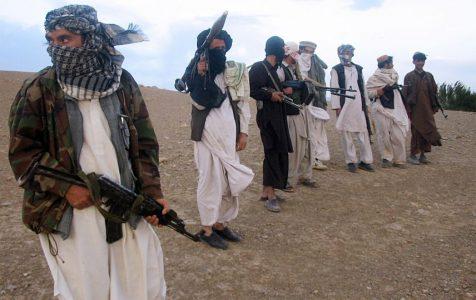
Islamic State and Taliban fighting over the rich mineral resources of Afghanistan
The Islamic State in Afghanistan (ISKP) controls major mining sites in eastern Afghanistan and has a strategic interest in the country’s rich mineral resources, new Global Witness research shows – a powerful example of the wider threat posed by armed groups and corrupt actors in Afghan mining.
ISKP controls large talc, marble and chromite mines in the Islamic State (IS) stronghold of Achin district in the Nangarhar province of eastern Afghanistan – the same area where in April 2017 the US military dropped the ‘Mother of All Bombs’ against ISKP-held caves. Nangarhar was the deadliest Afghan province for US troops in 2017.
The evidence on how much ISKP have been able to mine and profit from the minerals is mixed, but there has been at least some activity – and the group has fought major battles with the Taliban over neighbouring districts containing even richer deposits. A Taliban commander explicitly linked the ferocity of the conflict to competition over resources, saying: “The fight is over the mines.”
Nick Donovan, Campaign Director at Global Witness, said: “The Islamic State appears to have a significant strategic interest in Afghanistan’s minerals and controls some major mining areas. Given its track-record of exploiting natural resources in Iraq and Syria, this should be a wake-up call for both the Afghan government and the Trump administration. They must strengthen control over the trade in places like Nangarhar, but just as importantly put in place desperately needed transparency and oversight reforms so that legitimate mining has a chance to provide a viable alternative.”
Global Witness’ report At any price we will take the mines: the Islamic State, the Taliban, and Afghanistan’s white talc mountains uses satellite imagery and extensive interviews to highlight this threat in unprecedented detail. But it also shows how ISKP are just a high-profile example of a much wider problem of the involvement of armed groups and corrupt actors in Afghan mining.
This is evident just 50 kilometres from the ISKP controlled sites, where dozens of mines under Taliban influence are producing talc and marble in large quantities. Global Witness research uncovered evidence that the Taliban are making millions a year from talc alone – part of the $200-$300 million a year they are estimated to make from minerals across Afghanistan.
A significant part of this talc ends up being sold in the United States. Almost all of Afghanistan’s output is exported to Pakistan, which in turn exports more of it to the US than to any other country. Pakistan provides more than a third of US imports of talc, which is used in products ranging from paint and cosmetics to paper and baby powder. EU countries are also major buyers.
“Unwitting American and European consumers are inadvertently helping fund extremist groups in Afghanistan,” said Donovan. “The US and other importing countries must put in place strong requirements for companies to exercise full due diligence of their supply chains – as a matter both of moral duty, and of their strategic national security interest in a stable Afghanistan.”
He added: “the ultimate aim is not to stop the trade but to reform it in a way that preserves and strengthens the livelihoods of ordinary Afghans without funding the Islamic State, other illegal armed groups, or abusive strongmen.”
Source: Ekkesia





